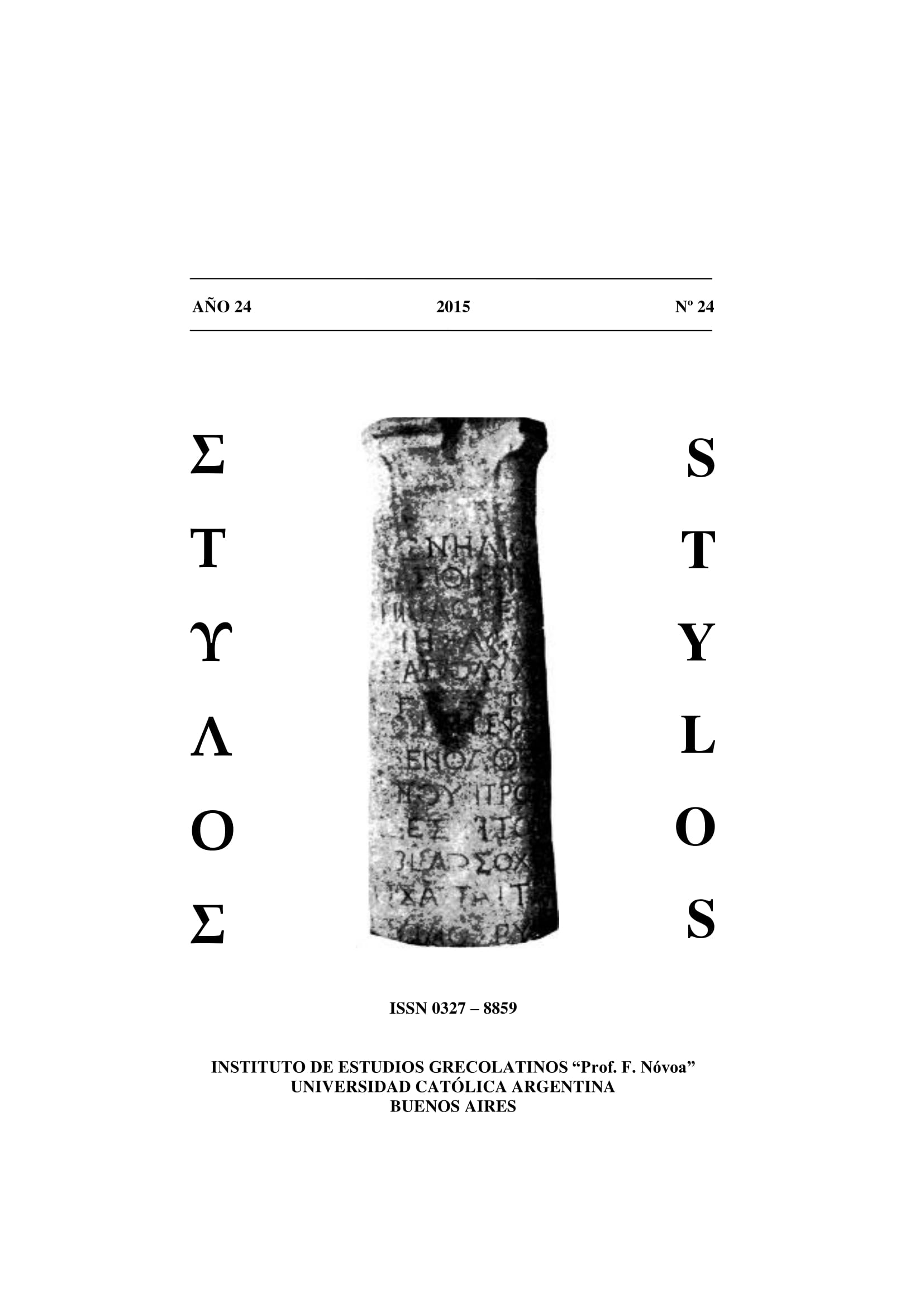CON REDES, SIN REDES: CAZAR Y SER CAZADO EN BACANTES DE EURÍPIDES
Keywords:
animalization, Bacchae, hunting.Abstract
In the context of a current work on processes of animalization in Euripides, this paper aims to analyze it in a tragedy where this resource practically explodes, Bacchae. We have studied the animalization with respect to Agave and the women's group as reference to concrete animals as well as also from the image of the sacrifice in Dionysus’ and Pentheus’ animalizations. Euripides emphasizes around the three main characters: Pentheus personifies par excellence the hunted hunter topos; his mother and the maenads represent the huntresses out of their minds to whom Dionysus can make hunt whatever he desires; the god himself resorts to the imaginary of hunting to appear first as prey and then as big killer. In UCA 2011 we have analyzed the references represented by hunting and the tensions within them that we can determine when we concentrate on concrete and abstract terms. In this paper we analyze other references to hunting in a play where multiple possible interpretations reveal the base ambiguities that structure the complexity of text.
Downloads
References
CHANTRAINE, P. (1999) Dictionaire Etymologique de la Langue Grecque, Paris: Klicksieck.
DIGGLE J. (1994) Euripidis Fabulae III, Oxford: University Press.
DODDS, E.R. (1960) Euripidis Bacchae, Oxford: University Press.
KIRK, G.S., (1979) The Bacchae of Euripides, Cambridge: University Press.
LIDDELL, H.G. & SCOTT, R. (1968) Greek-English Lexicon, Oxford: University Press.
MARCHANT, M.C. (1920) Xenophon. Xenophontis opera omnia (vol. 5), Oxford: Clarendon Press.
RODRÍGUEZ ADRADOS, F., (dir.) (1980-1997) Diccionario griego-español, vol. I-V, Madrid: CSIC.
RODRÍGUEZ CIDRE, E. (2011) “Ser hijo de Equión: lo monstruoso en Bacantes de Eurípides”, en DOMÍNGUEZ N., et alii (eds.), Criaturas y saberes de lo monstruoso II, Buenos Aires: IIEGE/FFyL–UBA, pp. 113-123.
RODRÍGUEZ CIDRE, E. (2012) “Animalizar lo masculino: Penteo en Bacantes de Eurípides”, en LÓPEZ, A. & POCIÑA, A. & SILVA, M.F. (coords.), De ayer a hoy: influencias clásicas en la literatura, Coimbra: Centro de Estudos Clássicos e Humanísticos da Universidade de Coimbra, pp. 473-483
ROUX, J. (1972) Euripide Les Bacchantes, Paris: Les Belles Lettres.
SEAFORD, R. (1996) Euripides: Bacchae, Warminster: Aris & Phillips.
SEGAL, C. (1997) Dionysiac Poetics and Euripides' Bacchae, Princeton: University Press.
THUMIGER,C. (2007) Hidden Paths. Notions of Self, Tragic Characterization and Euripides’ Bacchae, Londres: Institute of Classical Studies.
TYRREL, R.Y. (1871) The Bacchae of Euripides: with a revision of the text and a commentary, Londres: Longmans, Green, Reader, and Dyer.
VERNANT, J.P. & VIDAL-NAQUET, P. (1987) Mito y tragedia en la Grecia antigua I, Madrid: Taurus.
Downloads
Published
How to Cite
Issue
Section
License






